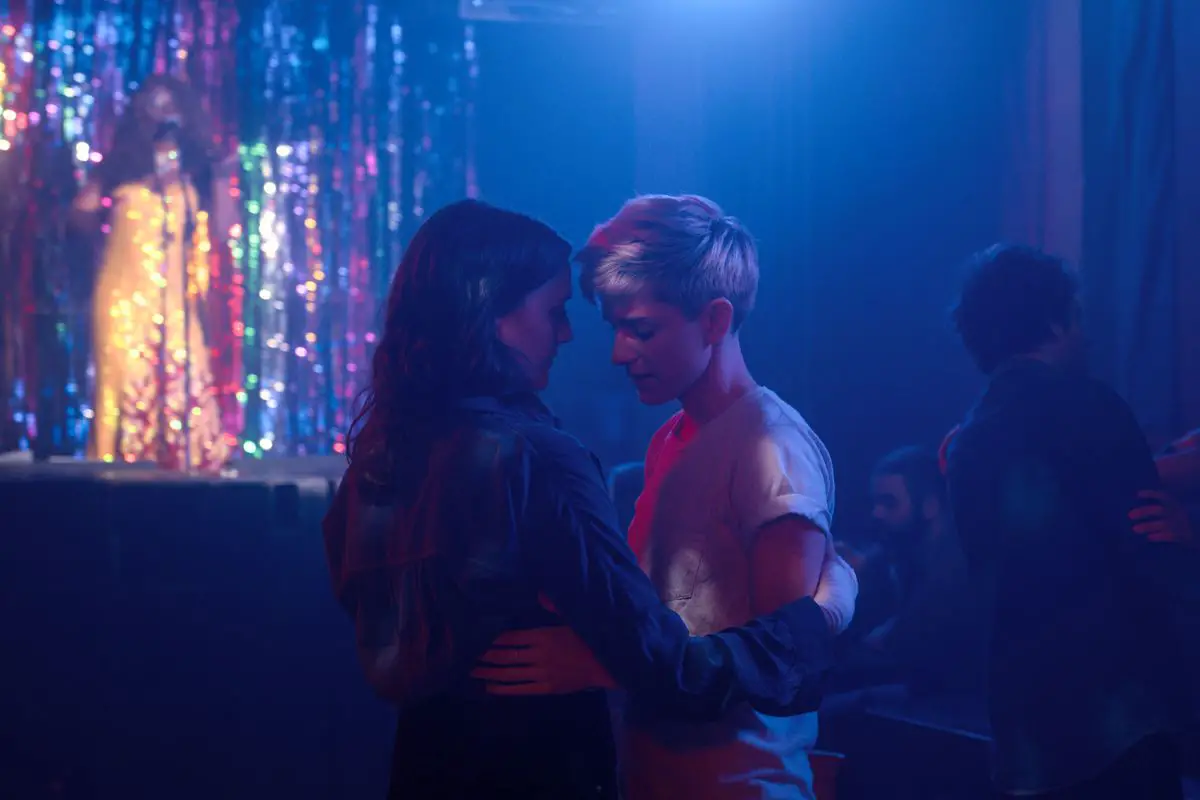“Feel Good” debuted internationally on Netflix earlier this year and currently boasts an audience rating of 88% and a critics rating of 100% on Rotten Tomatoes.
The series is a cross between a romantic comedy and a drama. It follows two women, Mae and George, and their new romantic relationship, which would best be described as intense and fast-paced.
Within the first 25-minute episode, Mae meets George at one of her comedy shows, and they hook up. Afterwards, a quick montage catches the audience up on their developing relationship and cuts to George asking Mae to move in with her after they’ve been dating for three months.
Right off the bat, “Feel Good” sets itself apart from a standard rom-com. The show really begins after George and Mae are already in an established relationship, an unusual approach since many rom-coms focus on the developing stages of romance and follow the two characters from when they get to know each other until they eventually start dating.
Instead, the show explores some deeper notions about love and what happens when two people discover they don’t actually know their partners very well after months of dating.
“Feel Good” is a semi-autobiographical depiction of Canadian comedian Mae Martin’s real life. Martin co-wrote and starred in the show as Mae, who is a fictionalized version of the actor from 10 years ago when Martin’s struggles with addiction were more prevalent.
The complications in Mae and George’s new relationship quickly arise in the first episode, when Mae’s mother asks in front of George if Mae has found a new NA (Narcotics Anonymous) meeting yet. Until this point in their relationship, Mae had kept her addiction a secret from George. When George confronts her about it, Mae becomes defensive, saying she doesn’t want to talk about it and that she’s been clean for a while.
Mae begrudgingly agrees to start attending NA meetings and opens up to George about her past and her addiction. However, around George, Mae still pretends to have a better grip on her recovery than she does in reality.
After attending several NA meetings and spending time with her eccentric sponsor, Maggie, Mae develops her theory that people with substance addictions easily become addicted to other aspects of life besides drugs. This leads her to the conclusion that George is like her new addiction, and this theory holds up throughout the show.
“Feel Good” depicts Mae’s addiction visually and audibly every time Mae is tempted by something. It happens frequently when Mae sees her friends doing coke or when she’s with George — or even just thinking about her. Her world seems to flicker and become distorted, and the scenes are paired with a high-pitched ringing in the background until Mae either resists the temptation or gives in.
As if Mae’s fight to stay sober isn’t enough of a strain on their relationship, George has her own set of problems regarding her insecurities about her sexuality.
Although George has been dating Mae for three months, she has never introduced Mae to any of her friends or family members. Whenever Mae asks about meeting them, George either comes up with an excuse or distracts her from the question with offers of sex, and it soon becomes clear why.
Before dating Mae, George considered herself straight and had never been in a relationship with another woman. George admits that Mae is the only woman she’s ever been attracted to and that if they broke up, she would likely return to exclusively dating men. As her relationship with Mae develops, George struggles to come to terms with her sexuality and keeps her new relationship a secret from her friends.
Instead of telling her friends and family that she’s dating Mae, George says she has a boyfriend named Jonathan and refuses to bring Mae to any events involving her friends, coworkers or family members.
Eventually, George does come out to her friends accidentally by declaring her love for Mae and making out with her in front of them while on morphine at the hospital.
After George’s coming out, it briefly seems like their relationship is changing for the better. Unfortunately, things get rocky again pretty quickly as George begins to worry Mae will lose interest in her, and Mae worries that she’ll never be able to truly fulfill George’s dreams of marriage and kids because she’s not a man.
In the end, the final episode leaves Mae and George’s relationship, as well as Mae’s addiction and recovery, in a rather ambiguous place.
Season 1 of “Feel Good” is made up of only six short episodes, but they go by quickly and feel just as chaotic as George and Mae’s relationship. However, it’s still easy to get attached to the characters and invested in their lives.
Both Mae and George have their faults, and they’re both to blame for their relationship’s problems. They both hurt each other in different ways, and ultimately, it’s hard to name one character as the villain of the show.
Yet despite Mae’s and George’s flaws, “Feel Good” represents both characters in a way that feels so genuine and human that you feel empathetic toward them regardless of the mistakes they make. Throughout the show, I found myself consistently rooting for their relationship to succeed.
Although at times it’s an unhealthy relationship, it’s clear that Mae and George care deeply about each other. They both have personal problems they need to overcome together if they want their relationship to be successful and healthy, but the show’s first season left me feeling hopeful for their future.
As of right now, there aren’t any official plans for a second season of “Feel Good,” but Season 1’s cliffhanger ending easily sets up the possibility. In an interview, Martin expressed definite interest in continuing to explore Mae and George’s relationship, and this, combined with the positive ratings the show has received, makes me hopeful that we’ll get to see more of Mae and George in the near future.

















